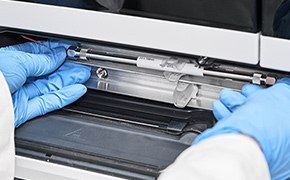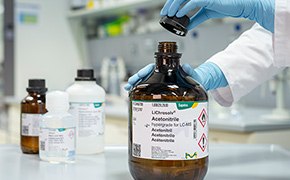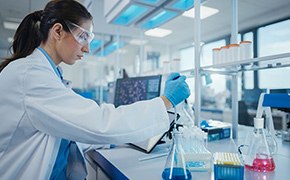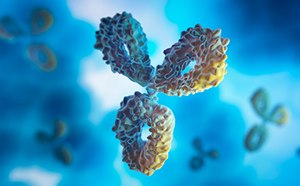Characterization and quality control of monoclonal antibodies (mAbs) is essential to ensure their efficacy and safety. Analytical techniques, like HPLC and mass spectrometry, are vital to assess various properties, such as aggregation, charge variants, and post-translational modifications (PTMs). Our extensive selection of products supports the detailed analysis and evaluation of mAbs to maintain quality and effectiveness.
Post-Translational Modification Analysis of Monoclonal Antibodies
Post-translational modification analysis of monoclonal antibodies (mAbs) assesses product consistency, efficacy, and safety. To identify and quantify PTMs in mAbs, mass spectrometry and chromatography are commonly used. High-purity solvents are used to prevent contamination and ensure consistency. HPLC columns separate and quantify different components of the mAb sample. Analytical reagents are used for characterization and detection of mAbs. Glycobiology profiling tools are used to analyze the carbohydrate structures of mAbs.
We offer all the tools you need to monitor and ensure the consistency, quality, and safety of mAbs across various stages of the mAb production workflow.
Related Categories
Explore RPC, SEC, IEC, HILIC, and IMAC columns.
Use our highest grade of solvents in mAb production to minimize the risk of impurities.
Count on our high-quality reagents for analytical characterization in various stages of mAb production.
Find glycosidases and glycobiology reagents and kits to support glycobiology profiling of mAbs.
Related Articles
- Protocol for Purification, Optional Reduction, and SEC-MS Analysis of a Monoclonal Antibody
A complete workflow for the intact and middle-up mass analysis of reduced and non-reduced monoclonal antibodies based on SEC-MS with sample preparation by protein-A affinity clean-up.
- Large Molecule HPLC
High performance liquid chromatography (HPLC) can be used to separate and identify different large biomolecules such as protein and peptides in a sample. It is based on the pumping of a sample with a solvent (mobile phase) through a column packed with sorbent material (stationary phase) at a high pressure.
- Peptide Mapping LC-MS/MS Analysis Workflow for Adalimumab
An optimized LC-MS/MS based workflow for low artifact tryptic digestion and peptide mapping of monoclonal antibody, adalimumab (Humira) using filter assisted sample preparation (FASP).
- Released N-Linked Glycan Analysis Workflow of Adalimumab
A step-by-step protocol for released N-linked glycan analysis of the monoclonal antibody adalimumab, based on UHPLC-FLR-MS and procainamide labeling.
- BIOshell™ IgG 1000 Å C4 UHPLC Column for Improved Biomacromolecule Separations
Learn about the advantages of these columns compared to commercial FPP columns for large molecule separation.
- Milli-Q® IQ 7003/05/10/15 Ultrapure & Pure Lab Water Purification System
Milli-Q® IQ 7003/05/10/15 lab water systems provide consistent-quality Type 1 and Type 2 water, are intuitive to use, and can support your lab's sustainability goals.
Related Webinars
Discover how to maximize efficiency and resolution when using reversed phase chromatography (RPC) and size exclusion chromatography (SEC).
Learn how to enable and maintain high quality and high sensitivity in LC-MS analyses by preventing impurities and contaminations.
Explore a simple and high throughput method for the quantitation of monoclonal antibodies and proteins in human and animal serum.
Explore our Products & Services
To continue reading please sign in or create an account.
Don't Have An Account?



